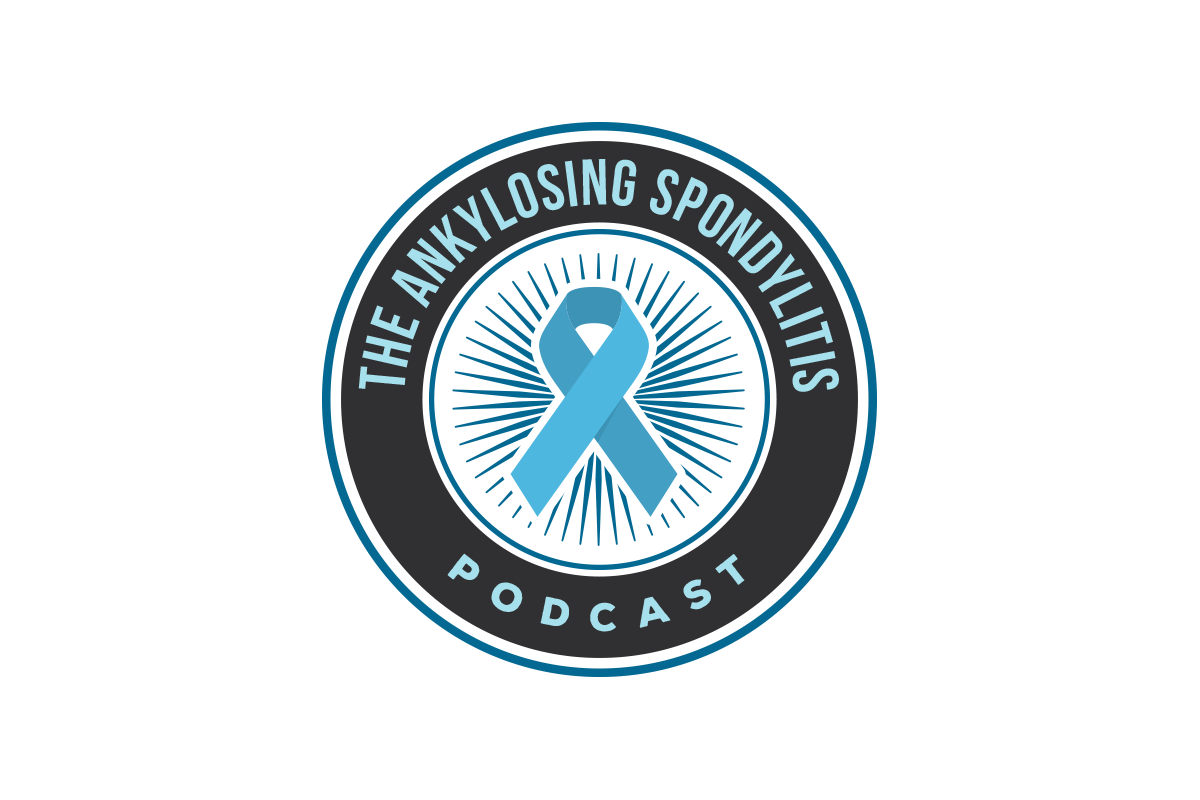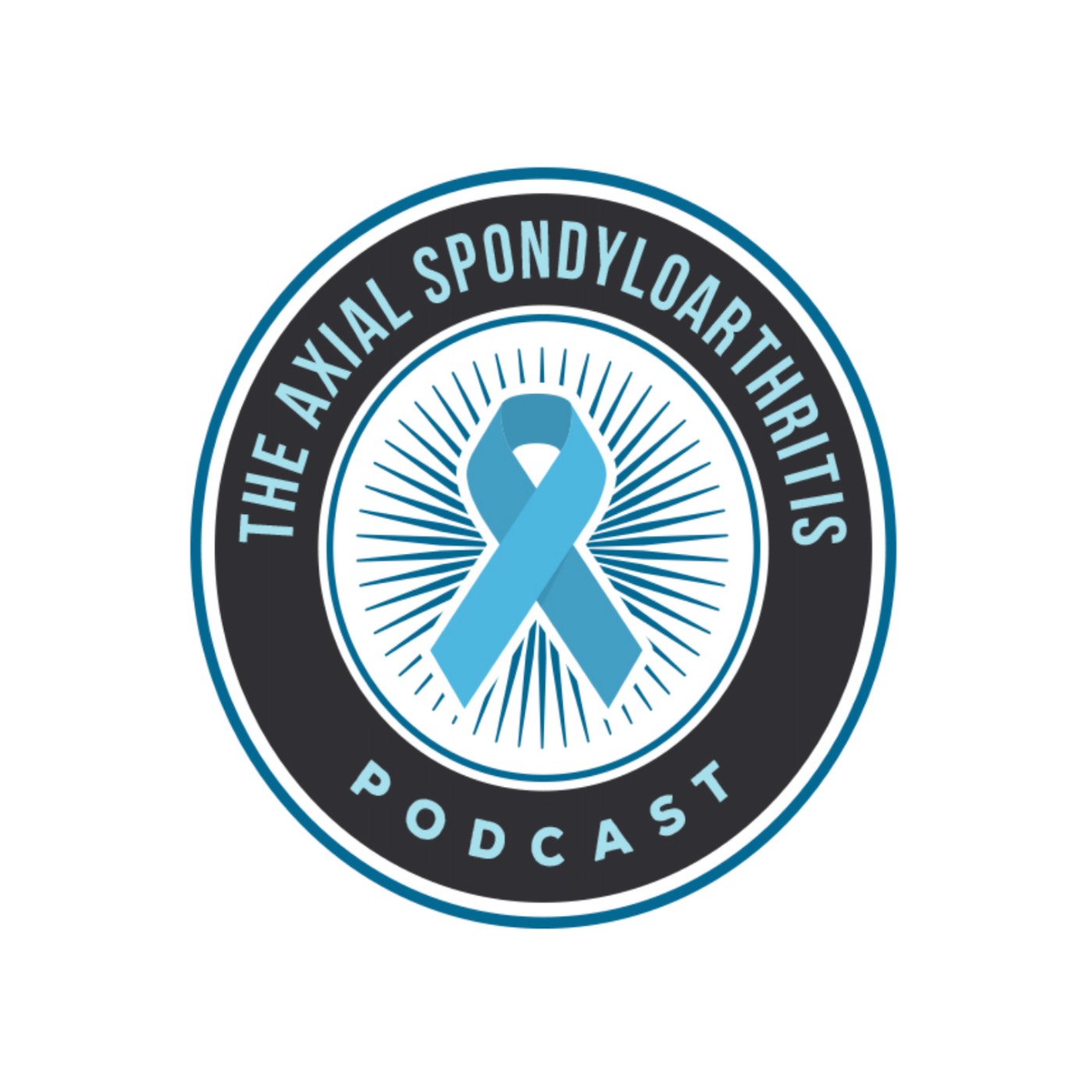Episode 47
Basic Information on your Microbiome and Ankylosing Spondylitis
Hello, and welcome to this week's episode of The Ankylosing Spondylitis Podcast. I hope this show finds everybody doing well. In today's show, I want to look at the relationship between your microbiome and Ankylosing Spondylitis. The reason for this came about from looking at a few items online and in some of the forums on Facebook. I was seeing one particular thread I believe an example that there was a number of people giving definitive, this is how I got Ankylosing Spondylitis. This caused my Ankylosing Spondylitis and that might have triggered a flare that brought the Ankylosing Spondylitis to your attention, or made you notice some of the symptoms that made you look further into what was causing them. But at this time, there really is nothing that I've ever found that says the doctors can pinpoint to this one exact reason as to why you got Ankylosing Spondylitis. No, there are some different contributing factors and there are some items that again, may have happened that triggered the domino to happen and and Ankylosing Spondylitis to finally come to life. There's nothing that at this time, they know, this is what exactly triggered anybody's Ankylosing Spondylitis. And that's what's really frustrating for a lot of us with the disease, is that we all present differently. We all get different symptoms, different reactions to medications. And if you listen to my episode a few back with Dr. Fox (Episode 42), he said there are some tests coming down the road that could help to better pinpoint which biologics you'll respond to better versus others. And that way, it's not such a guessing game like there is now with biologics where it's like, well take Enbrel if it doesn't work take Humira, if it doesn't work, take this one. It might take you four, five, or six until you find one that works. And if they have a way to narrow that down to one or two, that in of itself would be a great start to treating Ankylosing Spondylitis. The real big breakthrough is going to come when they can figure out what underlying symptoms make you susceptible to having it at some point in the future. One of those things is the gene, HLA-B27. Many people have that gene and it doesn't mean that if you have it, you will develop Ankylosing Spondylitis. Because there's people that don't have it, that develop Ankylosing Spondylitis. So it's just one of those factors to look at.
So I happened to be looking around on ankylosingspondylitis.net, which is a fantastic resource, that if you're not using it you should be. People with Ankylosing Spondylitis write many of the articles and the editorial team writes many. I encourage you to head over, it's just a fantastic resource. And it got me thinking, I found this article, which is where I tell the show about the relationship between the microbiome and Ankylosing Spondylitis. And I thought it was really interesting. I've also saw a lot of people coming onto the forum saying, I'm brand new. I need to learn. Where do I start? What do I do? So this is something that might be a good spot to start to think about as you try to develop your game plan for dealing with Ankylosing Spondylitis. What we know is that about 40 years ago, researchers found out that people with HLA-B27 are much more likely to get Ankylosing Spondylitis.
HLA-B27 is a genetic trait associated with the immune system and the inflammatory conditions like Ankylosing Spondylitis. Well, scientists still don't know why. There is connection between Ankylosing Spondylitis and HLA-B27. They continue to study that relationship, and the potential link to help find further treatments for the condition of, of ALS and, and potentially other items. So, one of the areas that is being researched and I want to look at some more, and this is the microbiome. What is the microbiome? Well, all of us have trillions of bacteria living, you know, in us and on us on our bodies, you know, in our bodies, and this collection of bacteria is called your microbiome. Most of the time this biome was helpful to us, it can help create nutrients that we need to be healthy, and studies have shown that the microbiome is important to our immune system and overall health. How the microbiome can affect as the immune system is where the microbiome as an HLA-B27. Come together. Scientists have discovered that as is caused by you know, the immune system And at the same time the microbiome has an effect on our immune system.
HLA-B27 also plays an important role in the immune system. Because of this, it's very likely that there's a link between AS and the microbiome. For example, they did a study and rodents were raised in a sterile environment, and never grew the healthful bacteria in their intestines. Because of this, their immune system did not develop rats that were HLA-B27. Positive, were less likely to have arthritis. If these same rats were given antibiotics, they developed reduced arthritis, those rats were able to stay in remission by eating a specific strain of lacto Beck cilia is a type of bacteria our bodies find friendly. Lactobacilli can be found in foods like yogurt, challenges in microbiome research.
So of course, of course, I mentioned the lactobacilli. But we can't eat yogurt. And that's not enough to cure Ankylosing Spondylitis, there is still more that needs to be learned about which bacteria can change the microbiome in the right way. Unfortunately, there are many things that limit our study of the microbiome. It's very difficult to read cultures of the bacteria, the microbiome, and the ones we can grow provide a great deal of information. However, that information is still not enough to get the full picture. Different bacteria can have different effects, even if they're similar. This makes it hard to get a complete understanding of the relationship between as the microbiome, the future of microbiome and as study, discovering the connections between how the gene HLA-B27 affects the microbiome, and how the microbiome affects the immune system, when it comes to as is the next step. And while animal studies are helpful, these cannot fully show how a human would respond. Studies of humans also have limits because it is hard to determine exactly when as begin One option may be to study ways to use diet or a probiotic to prevent eye inflammation and people with AS. That's a big one and you can listen to my previous show on uveitis (Episode 15). I write us that I did. It's a condition that if you're new to Ankylosing Spondylitis, and you've not had a bout of iritis yet, it's something to be keenly aware of, so that you can make sure you have an ophthalmologist on call and let them even if you've not had a reasonable visit them, call them up. Tell the staff that you have been diagnosed with Ankylosing Spondylitis. And that there may be a time if you develop or think you're developing itis or uveitis that you are calling them in and you need to be seen as soon as possible. I've dealt with multiple ophthalmologists. And I've never had one when I tell them I'm an Ankylosing Spondylitis patient, that have told me don't call. They're all keenly aware of how damaging this committee your eyes and I've not had one yet that's told me. We were not going to get you in. So just make sure that you let them know you have Ankylosing Spondylitis before. And that if you call, it's going to be an issue you're calling about you need to be seen as soon as possible. Scientists believe that the microbiome can potentially be used to treat ankylosing spondylitis, and other types of inflammatory diseases. However, in many ways, the microbiome is still a mystery, just like Ankylosing Spondylitis. So when you have these two items that are very, very difficult and very little is known about them, it makes it even it just compounds the issues to research just exponentially. So there's still a great deal of research needed to uncover exactly how the biome can help people fight Ankylosing Spondylitis. So with that said, today's episode is going to be a little short. I really wanted to just bring this to you because I thought it was fascinating. The microbiome is something that will again I'd said nobody knows exactly what triggered their Ankylosing Spondylitis. We all have some anecdotal ideas. I myself have one that goes back to when I was about eight. And I think an issue with a lot, I don't want a few other things but I think an issue with a doctor's visit might have helped to speed it along a little bit. By 9-10 I was having pain. Then by 14, I was diagnosed. So those are kind of the steps in my mind that may have triggered that as that was lying hidden in me and gave it the okay to just go.
So anyway, I hope everybody has a great day, a great week. I look forward to hearing from everyone. Go to spondypodcast.com. If you want to get in touch with you, there's a Contact link there. There's also some different articles I've put out and some items just of interest that if you want to research or even listen to past episodes, so spondypodcasts.com is the spot to go. And I hope to see y'all and hear from y'all. Everybody, please have a wonderful, wonderful day. Take care. Bye.
The Relationship Between The Microbiome And Ankylosing Spondylitis - https://ankylosingspondylitis.net/clinical/microbiome/
The correlation between intestinal dysbiosis and the development of ankylosing spondylitis -
https://www.ncbi.nlm.nih.gov/pubmed/31039390
Altered Gut Microbiome Contributes to Inflammation in Ankylosing Spondylitis, Study Suggests - https://ankylosingspondylitisnews.com/2020/01/23/gut-microbiome-in-ankylosing-spondylitis-patients-is-imbalanced-and-contributes-to-inflammation/


